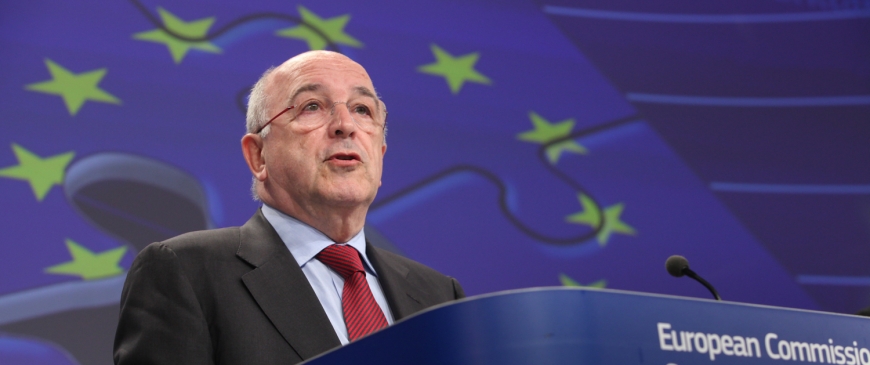
What would a Brexit mean for EU competition policy?
The debate over Britain’s future in the EU has to date failed to highlight the threat posed to EU competition policy and enforcement, which both play a critical role in underpinning the single market. Yet a British exit from the EU could have important repercussions for competition policy.
Several dangers present themselves. The first is the risk that the ground-rules for EU competition policy could be weakened in any future treaty renegotiation without the British at the table. Secondly, even absent such an explicit renegotiation, removing Britain’s input into policy and enforcement might encourage some drift in the way existing rules are applied. Thirdly, and regardless of the possibility of renegotiation or drift, there would be heavy additional costs for both government and for business. Lastly, a British exit could harm the global dialogue between competition authorities.
The threat of a tectonic shift in competition policy if the UK left the EU cannot be ruled out. It was, after all, the UK that led the counter-attack against President Sarkozy’s attempts to demote the principle of “undistorted competition” during the 2007 negotiations that led to the Lisbon treaty. Some crafty drafting in a new protocol, added to the Treaty at Britain’s behest, somehow did enough to allow the European Commission to maintain that nothing had changed. But the Sarkozy tendency, present even before today’s economic crisis, is far from a spent force: the forces of protectionism are alive and well, in France and elsewhere. A future treaty renegotiation could witness renewed calls to promote European champions, protect strategic national industries and slacken state aid disciplines.
Even without a change in the ground rules, a British exit from the EU might still weaken EU competition policy. National competition authorities together form the European Competition Network (ECN). The ECN co-ordinates policy with the European Commission, and national authorities are consulted on individual decisions via an advisory committee. The UK is an active voice in all these fora. Over time, Britain’s absence from them would probably lead to policy drift, as other voices became more prominent in the debate. British companies active across Europe would remain subject to EU competition rules, regardless of Brexit. But the UK would have voted itself off the committee that sets and applies the rules.
A British exit from the EU would also impose instant additional costs. Since Britain would no longer be part of the one-stop shop for reviewing mergers, these would need to be separately reviewed by the UK’s future Competition and Markets Authority (CMA). This would place extra costs on businesses, as well as an increased burden on the CMA, which would need more staff (and a budget to match). The same would apply to action against cartels and cases involving abuses of dominant market positions: complainants and defendants would have to meet in an additional and unnecessary forum. Of course, the UK could, like Norway, allow the Commission in Brussels to adjudicate on its cases. But with no British officials left in the Commission, and with policy possibly veering away from the UK’s attachment to free competition, this seems unlikely.
Finally, a British exit from the EU could harm the dialogue between competition authorities. Competition laws have proliferated around the globe. When the UK joined the EEC in 1973, there were only a handful of active jurisdictions, with the US far out in the lead, both in policy thinking and in enforcement. Today’s club of anti-trust authorities, the International Competition Network (ICN), counts members from 111 countries. Chinese policy is now a major pre-occupation, with India’s new law also starting to be felt. The spreading burden of compliance should bring its own reward, with markets becoming more open and competitive around the globe. But aligning these systems is also becoming a real challenge. The EU has been a key mover in the ICN, and has long since been recognised as a twin motor of global anti-trust action and advocacy alongside the US. Indeed, in recent years the EU has been much the more vigorous enforcer of the two. But a British exit from the EU would weaken the EU’s standing in the international anti-trust dialogue, and exclude the UK from the collective clout that goes with being part of the EU. It would also deprive the US of an interlocutor within the EU camp that shares its common law heritage. Worse, if the EU falls prey to protectionism, there could be more fundamental damage to the dynamic of anti-trust enforcement around the globe.
Competition policy in Europe has always been about more than just free competition: it also serves the goal of breaking down barriers between countries. Single market legislation removes legislative barriers, and competition policy ensures that firms do not erect private barriers in their place. Believers in the single market should pause to reflect whether the UK is better on the inside of EU competition policy, or on the outside looking in.
Alec Burnside is Managing Partner in the Brussels office of Cadwalader, Wickersham & Taft LLP.
